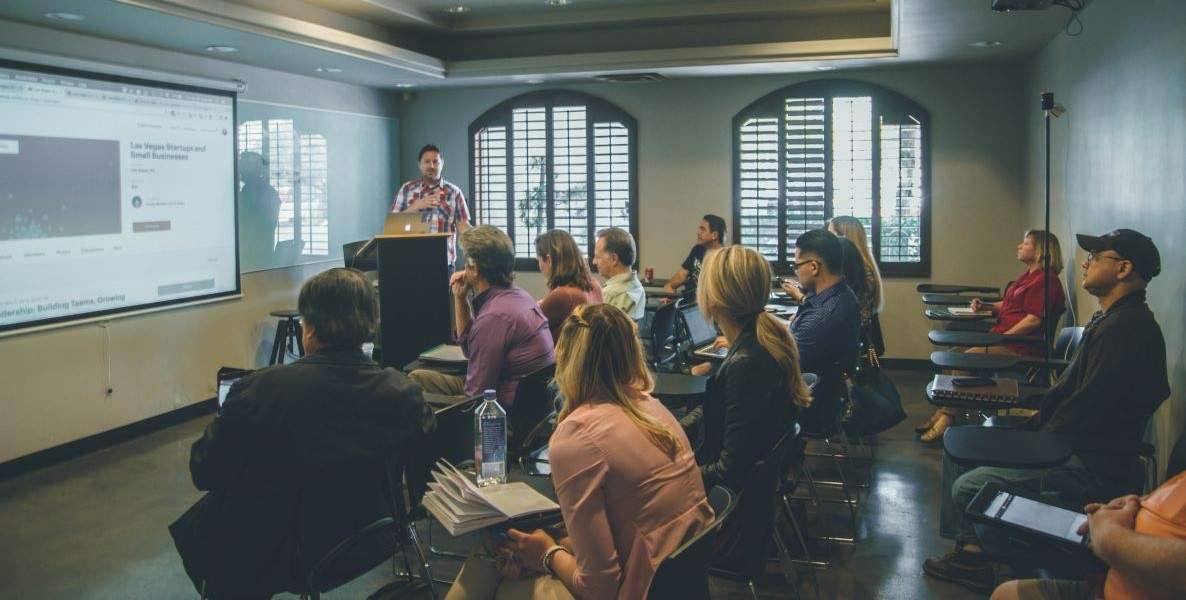Take a moment and picture a Philadelphia teacher. Who are they, where and whom do they teach?
We’re willing to bet that you are thinking about one of our city’s elementary, middle, or high school teachers. That very few of you pictured a teacher at the Community College of Philadelphia (CCP), the top destination for Philadelphians seeking education beyond high school. A place where 600 teachers affect the lives of up to 20,000 students every single year, teaching the heaviest course loads in higher education for the lowest pay, many working without the protections of a full-time contract, benefits or tenure.
This isn’t an accident. While part of the issue may be that in higher education teachers are often called “professors” (an elitist move designed to command more respect), the much bigger cause is the sheer lack of media coverage and public discussion of the educators at community colleges. A review of press coverage for the last five years is revealing: CCP’s teachers are only discussed in the media when their union is on strike. Their accomplishments, their educating of students, their very existence is otherwise completely neglected.
As a former student of both CCP and Temple University, and a former teacher tenured at two universities, we can attest to the extraordinary teaching happening at Philadelphia’s only community college. We recently attended a public talk by Dr. Faye Allard, professor of sociology, and winner of a Lindback Distinguished Teaching Award. Dr. Allard filled CCP’s Great Hall with a crowd of 400+ colleagues, students, and members of the public in person and online from around the world, as she illustrated her brilliant skills translating difficult social science research into unforgettable lessons.
The invisibility of CCP’s teachers costs us all, especially because we value and fund what we know.
Her topic was “the little big things,” which is also the name of her latest project. At a moment when the public is experiencing a serious mental health crisis affecting students and their parents, she shared ways to alleviate depression, promote positivity, and enhance academic success through a pedagogy of care.
Her talk was interactive and included experiments — for example, having audience members text someone else and say something nice, then take notice of how they felt. She asked a CCP administrator, and a member of the housekeeping staff — two people she calls “little big legends” — to stand. Then she described how the way they did their jobs made her feel each day — how they affected her teaching with their authentic engagement, willingness to stop and listen, say hello, and treat other people as human beings rather than passing them by.
One of us, Christina, experienced these things firsthand. One evening, on a day when her young son had to join her at school, Christina’s car was towed while she was in class. She was in a puddle of tears in the parking lot when Dr. Allard approached her, looked her in the eye and said, “We will figure this out together.” Christina suddenly understood that her teacher thought of her as important as family would. She mattered.
CCP teachers are delivering quality education
A “little big thing” that Dr. Allard did not say but clearly illustrated is something we could all do as a city, together: When we think about quality education we could think about CCP teachers. When we speak about college, counsel students where to attend, and congratulate one another on “getting in,” we could treat CCP itself as a destination of choice rather than a last resort. It is, after all, the only college in the city that recognizes the talent and potential in each one of us, not pretending that grades or test scores are valid proxies of human value or even the capacity to learn. And it is the only college in the city where we, the public, have public ownership and accountability for what the college achieves.
The invisibility of CCP’s teachers costs us all, especially because we value and fund what we know. People with power in this city and state overwhelmingly graduated from universities — so they think of them first. Those inequalities contribute to serious funding inequities just like those we see in K-12 education — more money for students with more advantages, and very little for those who most need college to succeed.
Compared to Pennsylvania’s public universities, its community colleges have about $8,000 less revenue to educate each student and receive less financial aid. Moreover, community colleges receive only 4 percent of all philanthropic giving to higher education. This is a tragedy, since community colleges are often where, as Mike Rose says, the “light goes on” for students. And, these colleges produce high graduation rates when they are properly funded.
Rethinking higher education finance might seem too hard for the average reader, so let’s start smaller. You can change the lives of Philadelphians by getting to know its educators. You can reverse a culture of disregard or even disparagement by speaking differently about community college faculty. April is Community College month. So take a moment and find a chance to meet a CCP teacher and ask them about their work. Or at least watch these CCP educators.
We bet that “little big thing” will affect you for a long, long time.
Christina Hasaan is a graduate of the Community College of Philadelphia and Temple University, and currently serves as a program coordinator for Swipe Out Hunger, a national nonprofit. Sara Goldrick-Rab taught at the University of Wisconsin-Madison and Temple University for nearly 20 years and is now a senior fellow at Education Northwest.
The Citizen welcomes guest commentary from community members who stipulate to the best of their ability that it is fact-based and non-defamatory.
![]() MORE ON HIGHER EDUCATION FROM THE CITIZEN
MORE ON HIGHER EDUCATION FROM THE CITIZEN
Photo by Kenny Eliason on Unsplash



